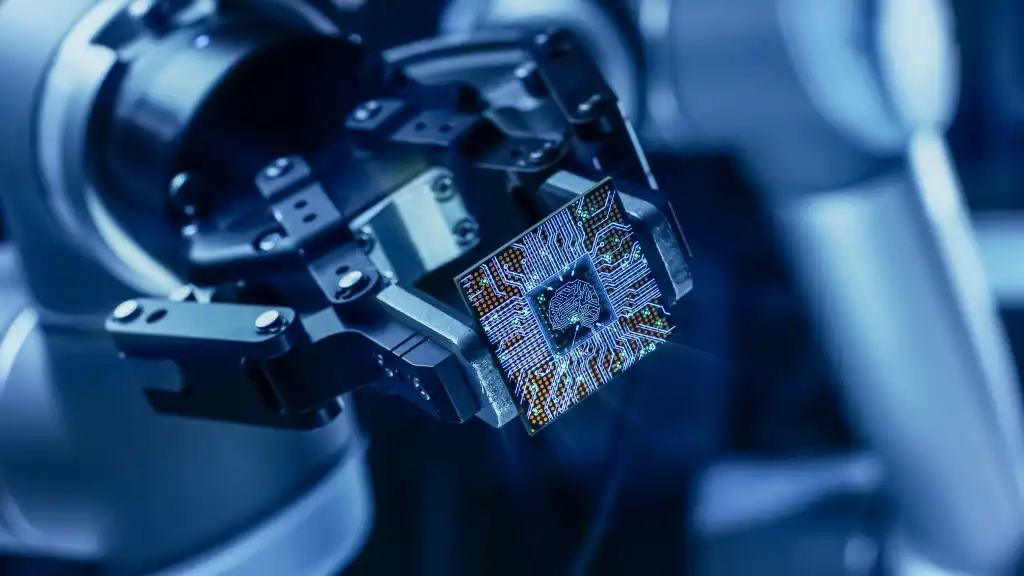Artificial Intelligence (AI) has rapidly evolved over the past decade, revolutionizing various industries from healthcare to finance. However, this surge in AI capabilities comes with a significant demand for computational power. As AI systems become more complex and data-intensive, traditional computing technologies struggle to keep up. Enter quantum computing—a field that promises to unlock new levels of processing power and efficiency. But can quantum computing truly provide the boost that AI needs?
The Growing Demand for Computational Power in AI
AI systems, particularly those involving deep learning, require immense computational resources. Training models like GPT-3, which has 175 billion parameters, involve processing vast amounts of data through numerous calculations. This process demands high-performance hardware, such as GPUs and TPUs, which are designed to handle parallel computations efficiently.
Despite advances in hardware, the increasing size and complexity of AI models push the limits of current technology. The training process can take weeks or even months, consuming significant energy and financial resources. As AI applications expand into more complex domains like natural language understanding, autonomous driving, and drug discovery, the demand for more powerful and efficient computing solutions continues to grow.
The Basics of Quantum Computing
Quantum computing leverages the principles of quantum mechanics to perform calculations that are infeasible for classical computers. Classical computers process information in bits, which can be either 0 or 1. Quantum computers, on the other hand, use quantum bits or qubits. Qubits can exist in multiple states simultaneously, thanks to superposition, and can be entangled, allowing for highly parallel processing capabilities.
This fundamental difference enables quantum computers to solve certain types of problems much faster than classical computers. For example, quantum algorithms like Shor’s algorithm can factor large numbers exponentially faster than the best-known classical algorithms, which has significant implications for cryptography.
Quantum Computing and AI Synergy
The potential synergy between quantum computing and AI lies in the ability of quantum systems to handle vast amounts of data and complex calculations more efficiently. Here are several ways quantum computing could revolutionize AI:
1. Enhanced Optimization
Many AI problems, particularly in machine learning, involve optimization. Finding the best parameters for a model, minimizing error functions, and solving combinatorial problems are critical tasks in AI development. Quantum computing excels at optimization problems. Quantum algorithms, such as the Quantum Approximate Optimization Algorithm (QAOA), can potentially solve these problems more efficiently than classical algorithms, leading to faster and more effective AI training processes.
2. Improved Machine Learning Algorithms
Quantum computing can introduce new machine learning algorithms that leverage quantum mechanics principles. Quantum machine learning (QML) aims to enhance traditional machine learning techniques. For instance, quantum versions of classical algorithms like support vector machines and k-means clustering have been proposed. These quantum algorithms could provide significant speedups and handle larger datasets than their classical counterparts.
3. Accelerated Data Processing
Data is the lifeblood of AI, and processing large datasets is a major bottleneck in AI development. Quantum computing’s ability to process large amounts of data simultaneously can drastically reduce the time required for data analysis and preprocessing. Quantum data processing can enhance tasks such as feature extraction, dimensionality reduction, and data compression, enabling more efficient handling of big data.
4. Improved Neural Networks
Neural networks are the backbone of many AI applications, including image and speech recognition, natural language processing, and autonomous systems. Quantum neural networks (QNNs) aim to combine the strengths of quantum computing with neural network architectures. QNNs have the potential to perform computations that are beyond the reach of classical neural networks, leading to more powerful AI models with enhanced capabilities.
Challenges and Limitations
While the potential of quantum computing in AI is immense, several challenges and limitations need to be addressed:
1. Technological Maturity
Quantum computing is still in its infancy. Building and maintaining stable qubits is a significant technical challenge due to issues like decoherence and error rates. Current quantum computers are noisy and have limited qubits, which restricts their practical use in large-scale AI applications.
2. Integration with Classical Systems
AI systems are deeply entrenched in classical computing infrastructure. Integrating quantum computing into existing AI workflows requires significant changes in hardware, software, and algorithms. Developing hybrid systems that combine the strengths of quantum and classical computing is a complex but necessary step.
3. Algorithm Development
Quantum algorithms for AI are still being researched and developed. While some quantum algorithms show promise, many are in theoretical stages or lack practical implementations. Bridging the gap between theoretical quantum algorithms and practical AI applications is crucial for realizing the potential benefits of quantum computing.
4. Resource Requirements
Quantum computers require specialized environments, including extremely low temperatures and isolated conditions to maintain qubit stability. The infrastructure and resources needed to build and operate quantum computers are substantial, limiting their accessibility and scalability in the near term.
The Road Ahead
Despite these challenges, the future of AI and quantum computing looks promising. Major tech companies like IBM, Google, and Microsoft are heavily investing in quantum computing research and development. Quantum cloud services, such as IBM’s Quantum Experience and Microsoft’s Azure Quantum, are making quantum computing more accessible to researchers and developers.
Collaborative efforts between quantum computing and AI researchers are crucial for advancing both fields. Interdisciplinary research can lead to the development of new quantum algorithms tailored for AI applications, optimized hardware for quantum-AI integration, and innovative solutions to overcome current technological barriers.
Conclusion
AI’s insatiable demand for computational power necessitates the exploration of new technologies like quantum computing. While quantum computing is not yet ready to replace classical systems, its potential to revolutionize AI is undeniable. Enhanced optimization, improved machine learning algorithms, accelerated data processing, and advanced neural networks are just a few ways quantum computing could transform AI.
As quantum technology matures and becomes more integrated with classical computing, the synergy between AI and quantum computing will likely unlock unprecedented capabilities, driving innovation and progress in numerous fields. The journey is complex and fraught with challenges, but the potential rewards make it a pursuit worth undertaking.


